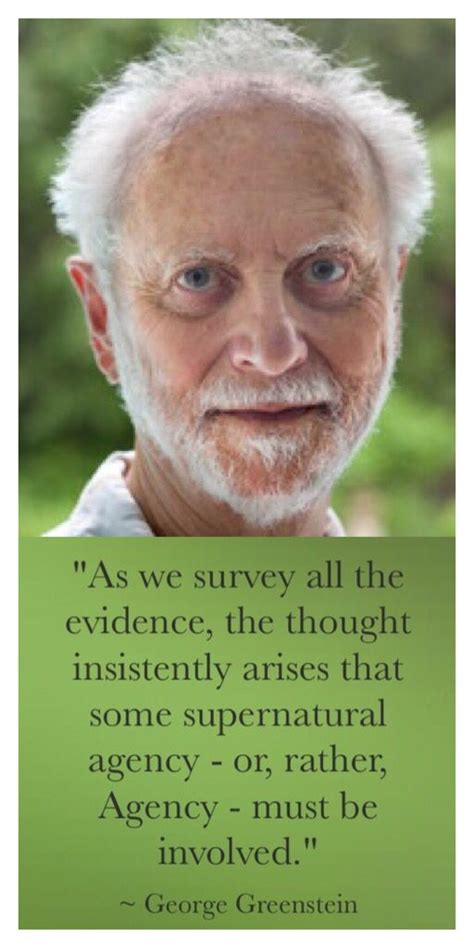A Quote by George Greenstein
This book is unique. I know of no other which so artfully tackles two of the greatest mysteries of modern science, quantum mechanics, and consciousness. It has long been suspected that these mysteries are somehow related: the authors’ treatment of this thorny and controversial issue is honest, wide-ranging, and immensely readable. The book contains some of the clearest expositions I have ever seen of the strange and paradoxical nature of the quantum world. Quantum Enigma is a pleasure to read, and I am sure it is destined to become a classic.
Quote Topics
Am
Authors
Become
Been
Book
Classic
Consciousness
Contains
Controversial
Destined
Enigma
Ever
Greatest
Honest
Immensely
Issue
Know
Long
Mechanics
Modern
Modern Science
Mysteries
Nature
Other
Paradoxical
Pleasure
Quantum
Quantum Mechanics
Read
Related
Science
Seen
Some
Somehow
Strange
Sure
Treatment
Two
Unique
Which
Wide
World
Related Quotes
When the province of physical theory was extended to encompass microscopic phenomena through the creation of quantum mechanics, the concept of consciousness came to the fore again. It was not possible to formulate the laws of quantum mechanics in a fully consistent way without reference to the consciousness.
In quantum mechanics there is A causing B. The equations do not stand outside that usual paradigm of physics. The real issue is that the kinds of things you predict in quantum mechanics are different from the kinds of things you predict using general relativity. Quantum mechanics, that big, new, spectacular remarkable idea is that you only predict probabilities, the likelihood of one outcome or another. That's the new idea.
Quantum mechanics is just completely strange and counterintuitive. We can't believe that things can be here [in one place] and there [in another place] at the same time. And yet that's a fundamental piece of quantum mechanics. So then the question is, life is dealing us weird lemons, can we make some weird lemonade from this?
I've been very involved in this quantum holographic formalism and helping to explore it as explanatory of the very root of our perceptual capabilities. It is postulated, for example, that this very basic entanglement, at the quantum level, at the level of subatomic matter, is really a part of quantum mechanics.
Ancient wisdom and quantum physicists make unlikely bedfellows: In quantum mechanics the observer determines (or even brings into being) what is observed, and so, too, for the Tiwis, who dissolve the distinction between themselves and the cosmos. In quantum physics, subatomic particles influence each other from a distance, and this tallies with the aboriginal view, in which people, animals, rocks, and trees all weave together in the same interwoven fabric.
As an adult I discovered that I was a pretty good autodidact, and can teach myself all kind of things. And developed a great interest in a number of different things from how to build a street hot rod from the ground up to quantum mechanics, and those two different kinds of mechanics, and it was really in the sciences, quantum mechanics, molecular biology, I would begin looking at these things looking for ideas, but in fact you don't read it for ideas you read it for curiosity and interest in the subject.





































